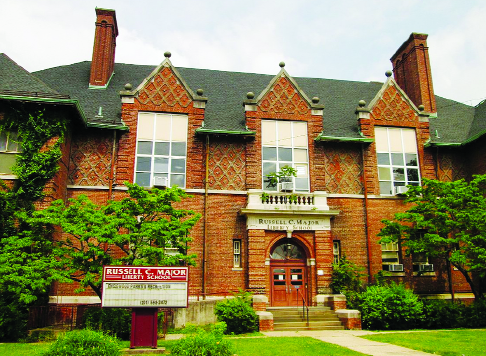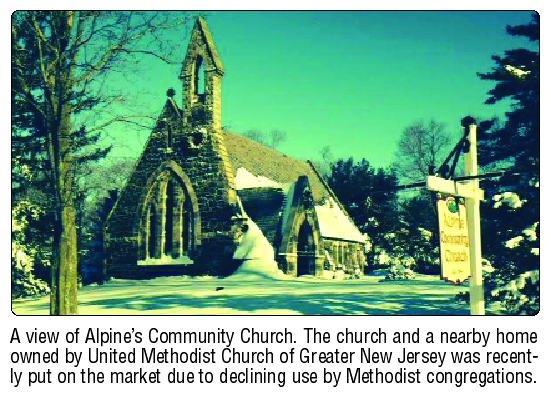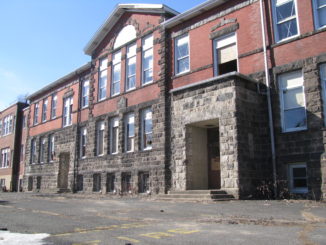
[slideshow_deploy id=’899′]
BY MICHAEL OLOHAN
OF NORTHERN VALLEY PRESS
ENGLEWOOD, NEW JERSEY —— Whether Englewood’s City Council wants to legally protect its historic properties with a historic preservation commission may be up for a vote Feb. 20, said the council president at the Feb. 6 council meeting.
With two council members absent Feb. 6, the mayor and three council members briefly debated the pros and cons of a commission versus the current historic advisory committee.
Two decades
The issue of commission vs. advisory committee has been discussed for nearly two decades before various councils, said Will Lee, chair of the city’s Historic Preservation Advisory Committee. Last year, Lee spoke to the council to answer questions and prod them to create a commission.
Englewood has had a Historic Preservation Advisory Committee since 1995. Unlike a commission, the committee is advisory and cannot legally designate properties or sites as “historic.”
While Councilwoman Kath-arine Glynn expressed support for a commission, Councilman-At-Large Charles Cobb and Council President Wayne Hamer both expressed support for taking action, but neither took a position.
“I’m in favor of what we have [and] transforming it into a historic commission,” said Glynn.
She said she was concerned about restrictions on homeowners, and whether homeowners whose properties are designated as historic have to get approval from a commission.
Pros and cons
Borough Attorney William Bailey, who prepared a memo on pros and cons of a commission, told Glynn that owners of designated historic homes must get approval from a commission to undertake renovations or improvements. If the commission does not approve, Bailey said a homeowner could appeal to the Planning Board or courts for relief.
“One could draw the sense of ‘you can’t have a red door’ or that there could be an arbitrary or whimsical aspect to members of the commission,” observed Glynn. She called for “a reasonable set of rules and that the council will also have some oversight.”
While expressing frustration with another delay, Cobb said the commission was “a positive thing” though he did not elaborate. “We need to make a commitment to get everybody up to speed and take action on it,” he said.
Hamer advised all members with more questions to contact Lee or Bailey to get their concerns resolved prior to a Feb. 20 meeting.
[slideshow_deploy id=’899′]
‘A broken record’
“I don’t want to be a broken record,” said Lee, who noted he addressed numerous councils over two decades about creating a commission.
Lee told members the “easy way” to create a commission is to turn the advisory committee into a commission, whether the mayor or council appoints the members. “Once established, the commission can work with the council to take the next steps after that,” he said.
Lee said the city Master Plan, which favors establishing a commission, states “owners should go along with this [historic designation]…that should give the council a lot of comfort in not going against owners.”
Lee said there were two types of historic commissions: strong and weak. A strong commission makes its own decision on designating homes/properties in a step-by-step legal process working collaboratively with the owner. He said a weak commission makes its recommendation to a planning board, which accepts or rejects it.
Tenafly and Closter
Both nearby Tenafly and Closter have strong commissions. Both identify local historical properties and homes for designation and follow a legal process to engage property owners in preserving historical aspects.
Previously, Lee said without a city historic commission, Englewood “has missed a lot of grants” for preserving Liberty School.
“I have confidence that things can go forward and any way I can be helpful I’d be glad to,” said Lee to council members.
[slideshow_deploy id=’899′]



